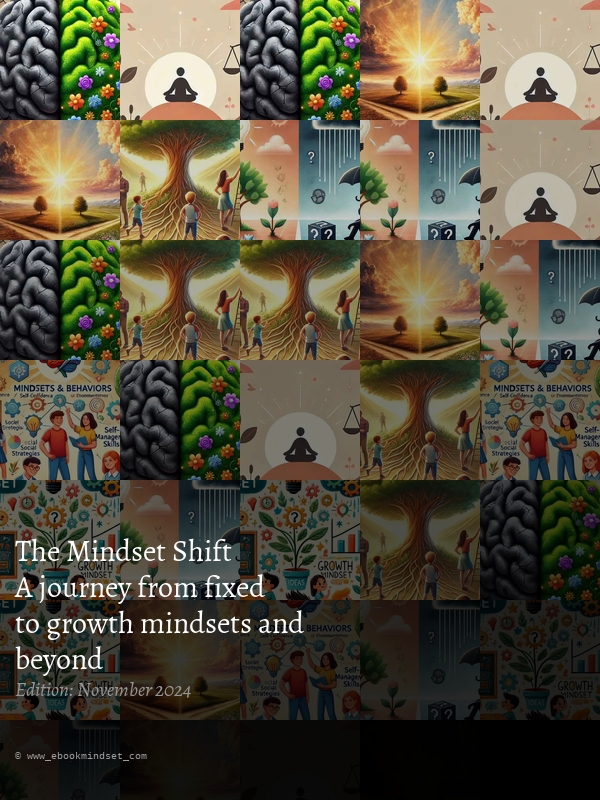Understanding the Movie Mindset: A Comprehensive Guide
The concept of a "movie mindset" encompasses the powerful influence films exert on our thoughts, beliefs, and behaviors. This article explores the psychological underpinnings of the movie mindset, its impact on creativity and innovation, and its practical applications in personal and professional contexts. We will delve into how movies shape our understanding of reality, influence our decision-making processes, and affect our emotional responses. Understanding this intricate relationship between film and the human psyche opens doors to leveraging the power of cinema for personal growth, professional success, and societal progress.
What is the Movie Mindset?
The movie mindset refers to the complex interplay of cognitive and emotional frameworks developed through our interactions with films. This mindset subtly yet profoundly shapes how we perceive reality, influences our decision-making processes, and affects our emotional responses. It's not simply about enjoying a film; it's about the internalization of narratives, characters, and themes that become integrated into our personal worldview. Key components of the movie mindset include:
- Narrative Construction: Our brains are wired to understand and appreciate stories. Movies provide compelling narratives that help us make sense of complex emotions and challenging situations. The structure of a film's plot, its pacing, and its resolution all contribute to how we process and internalize the information presented.
- Emotional Resonance: Films have a remarkable ability to evoke strong emotions, ranging from joy and exhilaration to sadness and fear. This emotional engagement isn't passive; it leads to changes in our attitudes and beliefs. We connect with characters on an emotional level, and their experiences can shape our perspectives and even influence our personal values.
- Cognitive Patterns: Movie characters' thoughts, actions, and choices serve as powerful behavioral models. We observe their strategies, their successes and failures, and unconsciously internalize these patterns. This can affect our own decision-making, problem-solving approaches, and even our interpersonal relationships. We learn by observing, and movies provide a rich tapestry of behaviors to analyze and interpret.
- Social and Cultural Learning: Movies often reflect and reinforce societal norms, values, and ideologies. Exposure to diverse perspectives and cultural representations through film can broaden our understanding of the world and challenge our preconceived notions. This can lead to increased empathy and a more nuanced view of social issues.
The Psychological Impact of Movies
Movies exert a profound psychological impact on viewers, altering perceptions, inspiring creativity, and subtly yet significantly changing behaviors. This influence extends beyond mere entertainment; it reaches into the core of how we understand ourselves and the world around us. The immersive nature of cinema allows for vicarious experiences that can be both emotionally transformative and intellectually stimulating.
Shaping Beliefs and Attitudes
Films frequently portray ideologies and cultural norms that shape viewers' beliefs, sometimes consciously and sometimes subconsciously. For example, films highlighting social justice issues may lead to more progressive attitudes and inspire activism. Conversely, films that perpetuate harmful stereotypes can reinforce prejudice and bias. The power of cinema to influence societal attitudes is undeniable, making it a powerful tool for both positive and negative social change. The narratives presented in film can shape our understanding of ethical dilemmas, societal structures, and even our personal values.
Emotional Engagement
Movies create powerful emotional engagement, allowing viewers to experience vicarious emotions and perspectives. This can increase empathy, understanding of diverse viewpoints, and emotional intelligence. By witnessing the emotional journeys of characters, we develop a deeper understanding of the human condition and the complexities of emotional responses. This empathetic connection fosters compassion and strengthens our ability to connect with others on a deeper level.
Behavioral Modeling
Movie characters frequently serve as role models, whether intentionally or unintentionally. Viewers may emulate protagonists' behaviors, learn from their mistakes, or adopt their strategies. This modeling can positively or negatively influence decision-making processes and the development of personal characteristics. Identifying with a character's struggles and successes allows us to learn from their experiences and apply lessons to our own lives. The choices made by characters, and their consequences, provide valuable insights into human behavior and the complexities of decision-making.
The Role of the Filmmaker's Mindset
Filmmakers possess a unique mindset that profoundly influences their creative process – a "filmmaking success mindset" encompassing persistence, creativity, vision, and effective collaboration. Cultivating a positive and resilient mindset is crucial for overcoming the inevitable obstacles inherent in the filmmaking process. This mindset is not just about technical skills; it's about the mental fortitude and creative drive necessary to bring a vision to life.
Key Attributes of a Filmmaking Success Mindset:
- Persistence: Filmmaking is a challenging endeavor, requiring unwavering dedication and the ability to overcome setbacks. Persistence is essential in navigating the complexities of production, distribution, and marketing.
- Collaboration: Filmmaking is a collaborative art form. Successful filmmakers foster strong working relationships with their teams, leveraging diverse talents and perspectives to achieve a shared creative vision. Effective collaboration is key to successful project completion.
- Vision: A strong creative vision is the foundation of any successful film. Filmmakers must have a clear understanding of their story, characters, and the overall message they aim to convey. This vision guides every aspect of the filmmaking process.
- Adaptability: The filmmaking process is often unpredictable. Successful filmmakers possess the ability to adapt to unexpected challenges and changes, while still maintaining the integrity of their vision.
- Resilience: Rejection, criticism, and technical difficulties are inevitable. A resilient mindset is crucial for bouncing back from setbacks and persevering towards the completion of a project.
The Innovation Mindset in Filmmaking
Innovative filmmakers like Peter Jackson exemplify a distinct innovation mindset. This mindset isn't merely about technological advancements; it's about a proactive approach to problem-solving, a relentless pursuit of creative solutions, and a dedication to pushing the boundaries of cinematic storytelling. This approach involves:
- Opportunity Recognition: Innovative filmmakers possess the ability to identify and capitalize on emerging opportunities, whether it's a new technology, a fresh storytelling approach, or an untapped market. They are constantly searching for ways to improve and evolve their craft.
- Resourcefulness: Filmmaking often involves working with limited resources. Innovative filmmakers are resourceful, finding creative ways to overcome constraints and achieve their vision without compromising quality.
- Outcome Focus: Innovative filmmakers are driven by a clear vision of the desired outcome. They maintain a strong focus on achieving their goals, adapting their strategies as needed while always striving for excellence.
- Experimentation: Innovation often involves experimentation and risk-taking. Innovative filmmakers are not afraid to try new things, even if it means facing potential failure. This willingness to push boundaries leads to groundbreaking cinematic achievements.
- Continuous Learning: The film industry is constantly evolving. Innovative filmmakers are committed to continuous learning, staying abreast of new technologies, trends, and storytelling techniques.
Practical Applications of the Movie Mindset
The movie mindset extends far beyond the realm of filmmaking, offering valuable insights and practical applications in various fields.
Education
Educators can leverage the power of film to enhance teaching and learning. Movies provide a compelling way to teach complex subjects, engaging students emotionally and cognitively, making abstract concepts more accessible and relatable. Films can be used to stimulate discussions, promote critical thinking, and encourage empathy and understanding of diverse perspectives. This multi-sensory approach to learning enhances engagement and retention.
Sales and Marketing
In sales and marketing, the movie mindset can help connect with customers emotionally, enhancing engagement and persuasion through the power of storytelling. Narrative pitches resonate more deeply than simple product descriptions; crafting compelling narratives that evoke emotion can significantly improve customer connection and conversion rates. Understanding how movies create emotional engagement can be a powerful tool for building brand loyalty and influencing consumer behavior.
Personal Development
Individuals can utilize movies for personal growth by reflecting on characters' journeys and applying lessons learned to their own lives. Analyzing characters' challenges, their decision-making processes, and their ultimate outcomes can offer valuable insights into personal strengths and weaknesses. This self-reflective practice can enhance self-awareness, improve goal-setting, and boost personal resilience. Movies provide a safe space for exploring complex emotions and developing coping mechanisms for life's challenges.
The Science Behind Movie Mindsets
Research consistently demonstrates that movies significantly impact viewers' mindsets by altering attitudes, beliefs, and behaviors. Exposure to specific themes and narratives can shift societal norms, influence political opinions, and even promote prosocial behaviors. Understanding the cognitive processes involved in film reception provides crucial insights into the power of cinematic influence.
Cognitive Processing
Viewers actively engage in complex cognitive processes while watching movies, including:
- Identification: Viewers identify with characters, projecting their own emotions and experiences onto them. This creates a powerful emotional connection, making the narrative more impactful.
- Reflection: Viewers reflect on the characters' actions, motivations, and consequences. This reflective process fosters critical thinking and encourages the application of lessons learned to personal experiences.
- Integration: Viewers integrate the information and emotions evoked by the film into their existing belief systems and worldviews. This integration can lead to shifts in attitudes, beliefs, and behaviors.
- Emotional Contagion: Viewers can experience emotional contagion, feeling the emotions of characters as if they were their own. This empathy-inducing effect makes movies powerful tools for influencing attitudes and beliefs.
- Narrative Transportation: Immersion in a compelling narrative can lead to "narrative transportation," a state in which viewers become fully absorbed in the story, experiencing the events as if they were real. This heightened emotional engagement amplifies the impact of the film's message.
Conclusion
The movie mindset profoundly shapes our beliefs, influences our behaviors, and enhances our creativity. Understanding how films affect our thinking and emotions allows us to leverage this knowledge for personal growth, educational advancement, and professional development. Incorporating filmmaking success mindsets and fostering an innovative thinking approach helps navigate challenges, fosters creativity, and builds resilience. This article offers valuable insights into the psychological implications and practical applications of the movie mindset, empowering readers to harness the power of cinema for positive change.




